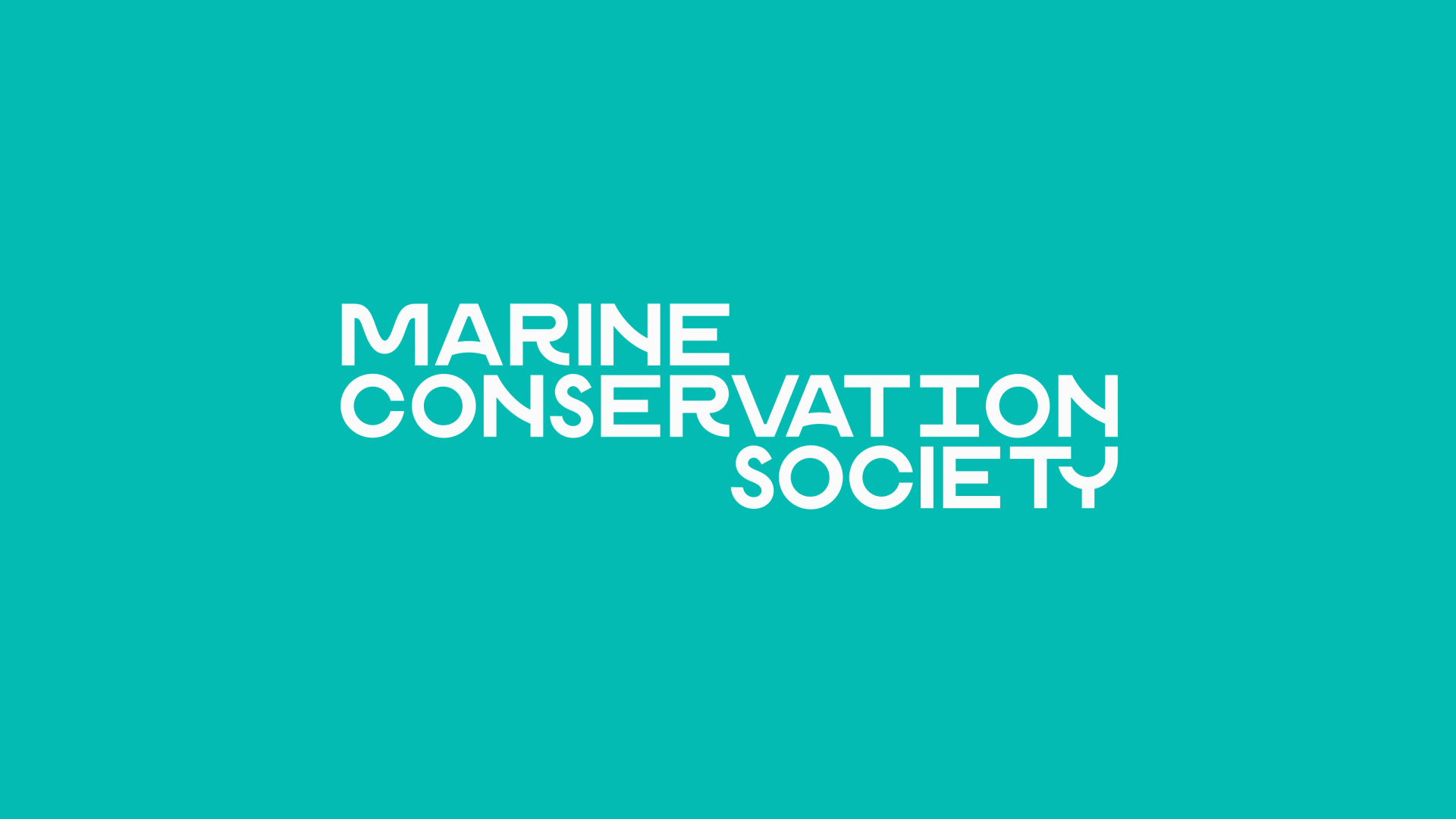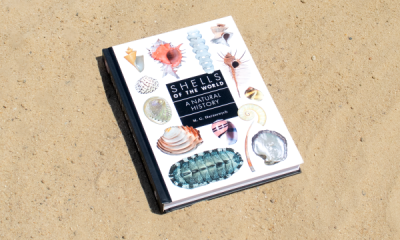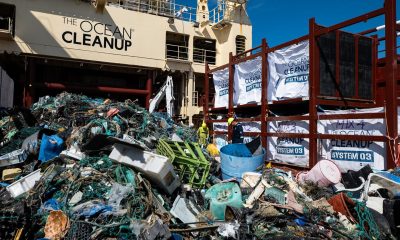Marine Life & Conservation
Beach litter going down, but plastic still polluting UK shores

 Marine Conservation Society reveals results of 2021 Great British Beach Clean
Marine Conservation Society reveals results of 2021 Great British Beach Clean- On average, litter found on UK beaches dropping year on year
- 75% of beach litter made of plastic or polystyrene
- An average of just 3 single-use plastic bags found on UK beaches
The Marine Conservation Society’s annual Great British Beach Clean, which took place from 17th – 26th September this year, saw 6,176 volunteers head outside to clear litter from their local streets, parks and over 55,000 metres of UK beaches.
A total of 5064.8kg of litter was collected and recorded over the week by dedicated volunteers and the results are in.
In positive news, the average litter recorded per 100 metres is dropping year on year across the UK. This year, an average of 385 items were found, dropping from averages of 425 in 2020, and 558 in 2019.
Cotton bud sticks moved out of the UK’s top ten most common rubbish items this year, with the number of plastic cotton bud sticks collected being the lowest in the Great British Beach Clean’s 28-year history. This year, an average of 6 plastic cotton bud sticks were found, dropping from 15 in 2020. These decreasing figures are a positive indication that policies are working.
Scotland was the first UK country to ban the manufacture and sale of plastic cotton bud sticks in October 2019. England followed suit last year, introducing a ban on single-use plastic straws, cotton bud sticks and stirrers. It’s likely that the drop in numbers found on beaches is, at least in part, as a result of these policies over the last couple of years. The Welsh Government is yet to introduce a ban on plastic cotton bud sticks.
Numbers of single-use plastic bags on beaches have continued to drop, from a high of 13 on average in 2013, down to just 3 in 2021.
Plastic pieces remain the most prevalent form of litter on UK beaches, with 75% of all litter collected being plastic or polystyrene, with an average of 112 pieces found for every 100 metres of UK beach surveyed.
Top five most common litter items on UK beaches (average per 100m)
- Plastic and polystyrene pieces (111.7)
- Cigarette stubs (27.8)
- Crisp and sweet packets, lolly sticks etc (25.9)
- Plastic caps and lids (15.5)
- String/cord (15.3)
With so much beach litter being made from plastic, the Marine Conservation Society is continuing to campaign for ambitious single-use plastics policies which would phase out the manufacture and sale of plastic products in the UK.
Dr Laura Foster, Head of Clean Seas at the Marine Conservation Society: “UK governments’ current piecemeal approach to single-use plastics policy just won’t cut it anymore. While we’re seeing a downward trend in litter on beaches, we’re still seeing huge volumes of plastic washing up on our shores.
“A shocking 75% of all the litter we collected from UK beaches this year was made of plastic or polystyrene, so it’s clear what we need to focus our attention on. Comprehensive and ambitious single-use plastics policies which reduce the manufacture and sale of items is the quickest way of phasing out plastic from our environment.”
Lizzie Prior, Beachwatch Manager at the Marine Conservation Society: “The ongoing downward trend we’re seeing in litter levels on UK beaches is a positive sign that the actions we’re taking at a personal, local and national level are working. But we can’t sit back and relax, now is the time for even more ambitious action.”
The Marine Conservation Society included PPE items on its survey form for the first time this year*, providing a baseline from which to understand the impact and presence of face masks and gloves in the future. Levels of PPE found this year were similar to 2020, when masks were made mandatory across the UK. 32% of UK beaches cleaned found PPE litter though masks ranked 59 out of 121 for most common litter items. Inland, for the charity’s Source to Sea Litter Quest, 80% of litter picks found PPE in 2021, in comparison to 69% found in 2020.
Read more about the Great British Beach Clean, and the Marine Conservation Society’s year-round Beachwatch programme on the charity’s website: www.mcsuk.org.
Blogs
The Ocean Cleanup Breaks 10,000,000 KG Barrier

The Ocean Cleanup, the global non-profit project, has removed a verified all-time total of ten million kilograms (22 million lbs.) of trash from oceans and rivers around the world – approximately the same weight as the Eiffel Tower.
To complete its mission of ridding the oceans of plastic, The Ocean Cleanup uses a dual strategy: cleaning up the Great Pacific Garbage Patch (GPGP) to remove the plastic already afloat in the oceans, while stopping the flow of plastic from the world’s most polluting rivers.
Through cleaning operations in the GPGP and in rivers in eight countries, the cumulative total of trash removed has now surpassed ten million kilograms. This milestone demonstrates the acceleration of The Ocean Cleanup’s impact, while underlining the astonishing scale of the plastic pollution problem and the need for continued support and action.
While encouraging for the mission, this milestone is only a staging point: millions more tons of plastic still pollute our oceans and The Ocean Cleanup intends to continue learning, improving and innovating to solve this global catastrophe.
This announcement comes as governments from around the world meet to continue negotiations to develop a new legally binding instrument to end plastic pollution at INC4 in Ottawa, Canada. Representatives of The Ocean Cleanup will be in attendance and the organization will be urging decision-makers to collaborate towards a comprehensive and ambitious global treaty which addresses plastic at all stages of its life cycle and in all marine environments worldwide, including in areas beyond national jurisdiction.
It is encouraging to see that the need for remediation is reflected in the various options for potential treaty provisions. It is essential that the final treaty contains clear targets for the remediation of legacy plastic pollution, and reduction of riverine plastic emissions.
Tackling plastic pollution requires innovative and impactful solutions. The treaty should therefore incentivize the innovation ecosystem by fostering innovations that make maximal use of data, technology and scientific knowledge – such as those designed and deployed by The Ocean Cleanup.
‘After many tough years of trial and error, it’s amazing to see our work is starting to pay off – and I am proud of the team who has brought us to this point.’ said Boyan Slat, Founder and CEO of The Ocean Cleanup. ‘While we still have a long way to go, our recent successes fill us with renewed confidence that the oceans can be cleaned.’
The Ocean Cleanup was founded in 2013 and captured its first plastic in 2019, with the first confirmed catch in the GPGP coming soon after the deployment of Interceptor 001 in Jakarta, Indonesia. After surpassing one million kilograms of trash removed in early 2022, the non-profit project has since progressed to the third iteration of its GPGP cleaning solution, known as System 03, and a network of Interceptors currently covering rivers in eight countries, with more deployments set for 2024.
About The Ocean Cleanup
The Ocean Cleanup is an international non-profit organization that develops and scales technologies to rid the world’s oceans of plastic. They aim to achieve this goal through a dual strategy: stemming the inflow via rivers and cleaning up the legacy plastic that has already accumulated in the ocean. For the latter, The Ocean Cleanup develops large-scale systems to efficiently concentrate the plastic for periodic removal. This plastic is tracked and traced through DNV’s chain of custody model to certify claims of origin when recycling it into new products. To curb the tide via rivers, The Ocean Cleanup has developed Interceptor™ solutions to halt and extract riverine plastic before it reaches the ocean. Founded in 2013 by Boyan Slat, The Ocean Cleanup now employs a broadly multi-disciplined team of approximately 140. The foundation is headquartered in Rotterdam, the Netherlands.
For more information, visit: theoceancleanup.com and follow @theoceancleanup on social media.
Marine Life & Conservation
Steve Backshall to headline Shark Trust’s flagship event: For the Love of Sharks

Join a host of amazing, shark loving, speakers including Steve Backshall and the Shark Trust team for an evening celebrating shark conservation at the Royal Geographical Society in London this November.
Date: 29th November 2024
Time: 6-10pm
Location: Royal Geographical Society, London
Tickets: https://www.sharktrust.org/Event/flos24
The event will be a celebration of all things shark. Those lucky enough to get hold of tickets will hear from engaging guest speakers with a passion for sharks.
The line-up includes (*subject to change if unforeseen circumstances arise)
Steve Backshall: One of television’s busiest presenters, BAFTA award-winning wildlife expert Steve has been passionate about the wild world ever since he was young.
Steve’s impressive TV career has taken him all around the world, investigating a wide array of species and environments. Steve has filmed over 100 hours of children’s wildlife programmes with the BAFTA award winning Deadly 60 franchise and recently, with Sky Nature, for his new series ‘Whale with Steve Backshall’. He has been a patron for the Shark Trust for 10 years.
Simon Rogerson: is a photojournalist specialising in natural history, diving and the sea.
He is editor of SCUBA magazine, the official journal of the British Sub-Aqua Club. Simon started his career as a crime reporter but gravitated towards his ‘less depressing’ interest in underwater exploration, joining the staff of DIVE magazine in 1999. In 2005 he was named ‘Editor of the Year’ in the PPA’s Independent Publishing Awards. Simon also works as a freelance writer, contributing frequently to the Sunday Times and Telegraph, in addition to BBC Wildlife, Esquire, and a host of international diving magazines. He is the author of a book, Dive Red Sea, published by Ultimate Sports. Now based in Berkshire, Simon has been a Patron of the Shark Trust for 20 years.
More speakers to be announced soon. Head to the Shark Trust website to learn more.
The evening will also allow guests the final chance to see the Oceanic 31, shark art exhibition. Some of the artwork will be auctioned/raffled at the event, while the rest will be auctioned online to raise money for the Shark Trust Oceanic Programme.
For the Love of Sharks is an evening with something for everyone who is interested and fascinated by sharks. Join the Shark Trust, their Patrons, Trustees and Staff, along with a host of supporters for this celebration of shark conservation.
For more information or to buy a ticket: https://www.sharktrust.org/Event/flos24
-

 News3 months ago
News3 months agoCapturing Critters in Lembeh Underwater Photography Workshop 2024: Event Roundup
-

 Marine Life & Conservation Blogs3 months ago
Marine Life & Conservation Blogs3 months agoCreature Feature: Swell Sharks
-

 Gear Reviews4 weeks ago
Gear Reviews4 weeks agoGEAR REVIEW – Revolutionising Diving Comfort: The Sharkskin T2 Chillproof Suit
-

 Blogs2 months ago
Blogs2 months agoMurex Resorts: Passport to Paradise!
-

 Blogs3 months ago
Blogs3 months agoDiver Discovering Whale Skeletons Beneath Ice Judged World’s Best Underwater Photograph
-

 News3 months ago
News3 months agoPADI Teams Up with Wellness Brand Neuro to Drive Ocean Change and Create a Blue State of Mind
-

 Gear Reviews3 months ago
Gear Reviews3 months agoGear Review: Oceanic+ Dive Housing for iPhone
-

 Marine Life & Conservation2 months ago
Marine Life & Conservation2 months agoSave the Manatee Club launches brand new webcams at Silver Springs State Park, Florida

















